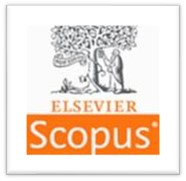Document Type
Article
DOI
10.71071/JAM/v11i2.1.17
Department
School of Nursing and Midwifery, Pakistan
Abstract
Introduction: Colostrum is a thick, sticky, clear and yellowish-coloured milk produced after the first few hours of birth until day 3. It consists of vitamin A, proteins, lipids, potassium, and maternal antibodies, including lactoferrin, immunoglobulin, growth factors and antimicrobial factors. Colostrum avoidance is the practice of squeezing out, pumping, and discarding the first milk. Various studies have reported colostrum avoidance worldwide, but its prevalence is higher in developing countries. Every day, approximately 3000 to 4000 infants die due to diarrhea and respiratory infections in developing countries, and one of the leading causes is colostrum avoidance. Infants are unable to take maternal antibodies that provide immunity against infections and other health-related issues.
Method: This study was conducted through a comprehensive literature search from 2014 to 2024, focusing on avoiding colostrum and its associated factors in developing countries. For this purpose, various databases were extensively searched, including PubMed, CINAHL, and Science Direct. The search for relevant literature was conducted using MeSH terms and got 5278 articles. After applying the filters and reviewing the abstracts and relevance, 22 articles were included in this study.
Results: Studies from Ethiopia, Pakistan, India, and Nepal were included in this study, and they reported a high prevalence of colostrum avoidance. Major associated factors of colostrum avoidance were delay in initiation of breastfeeding, childbirth through cesarean section, mothers not counselled for breastfeeding during antenatal and postnatal care, poor knowledge regarding breastfeeding practices, and cultural beliefs and traditional practices.
Conclusion: The prevalence of the colostrum is high among developing countries. Mothers discard the colostrum as believing in the societal myths and perceive the colostrum as heavy, toxic, filthy, and harmful to the infant. Such harmful practices should be addressed and minimized by educating the mothers regarding the significance of colostrum feeding. In Pakistan, the prevalence of colostrum is high compared to other developing countries, which needs to be investigated, and measures need to be taken.
Recommended Citation
Aslam, M Z, Johnson, J, Baig, M, & Musaddique, A. Factors influencing colostrum avoidance in developing countries: Insights from a literature review. Journal of Asian Midwives. 2024;11(2):81–97.



